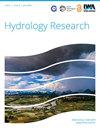与极端环境作斗争:从配电网和气候变化适应战略的天气灾害中吸取的教训
IF 2.4
4区 环境科学与生态学
Q2 WATER RESOURCES
引用次数: 0
摘要
电力基础设施是关键的生命线系统,其设计目的是在正常运行条件下,在常见故障或预期干扰的情况下,以高可靠性为用户供电。然而,最近许多由天气引起的灾害给电力网络带来了前所未有的挑战,这突显出电力系统仍未准备好应对破坏性的大规模严重事件。更糟糕的是,预计由于气候变化,这种气候灾害发生的频率和强度将不断上升。极端天气的加剧将导致更高的损失和输电能力的变化,增加老化电力基础设施遭受物质破坏的频率和重要性,从而导致严重的中断、级联故障和不可预测的停电。本文介绍了不同类型的极端天气事件的真实案例及其对希腊配电网络的影响。希腊由于其地理位置、地貌和现有架空电网资产而极易受到影响,并强调了与适应方案和灾害管理最佳实践相关的经验教训。文献综述和与其他电网运营商的基准测试也用于探索增强弹性的技术能力、防风雨解决方案和决策举措应关注的运营战略。本文章由计算机程序翻译,如有差异,请以英文原文为准。
Battling the extreme: lessons learned from weather-induced disasters on electricity distribution networks and climate change adaptation strategies
Abstract Electricity infrastructures are critical lifeline systems that are designed to serve with a high degree of reliability the power supply of consumers under normal operating conditions and in case of common failures or expected disturbances. However, many recent weather-induced disasters have brought unprecedented challenges to the electricity networks, underlining that power systems remain unprepared to absorb disruptive large-scale and severe events. Worse still, it is expected that such climate hazards will take place at rising frequency and intensity rates due to climate change. The intensification of meteorological extremes will lead to higher losses and changes in transmission capacity, increasing the frequency and importance of material damage to the aging electric infrastructure, thus resulting in significant disruptions, cascading failures, and unpredictable power outages. This review paper presents real-life examples of different types of extreme weather incidents and their impacts on the distribution network in Greece, a country that is highly vulnerable because of its location, geomorphology, and the existing overhead network assets, highlighting lessons learned related to adaptation options and disaster management best practices. Literature review and benchmarking with other grid operators are also employed to explore resilience-enhancing technical capabilities, weatherproof solutions, and operational strategies on which policy-making initiatives should focus.
求助全文
通过发布文献求助,成功后即可免费获取论文全文。
去求助
来源期刊

Hydrology Research
WATER RESOURCES-
CiteScore
5.00
自引率
7.40%
发文量
0
审稿时长
3.8 months
期刊介绍:
Hydrology Research provides international coverage on all aspects of hydrology in its widest sense, and welcomes the submission of papers from across the subject. While emphasis is placed on studies of the hydrological cycle, the Journal also covers the physics and chemistry of water. Hydrology Research is intended to be a link between basic hydrological research and the practical application of scientific results within the broad field of water management.
 求助内容:
求助内容: 应助结果提醒方式:
应助结果提醒方式:


